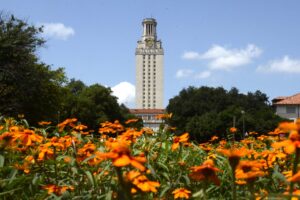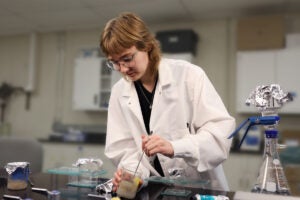Last year at this time Bob Harkins’ main priority was the special needs shelter at the Population Research Center in the wake of Hurricane Ike. This fall Harkins, associate vice president for campus safety and security, has a different priority H1N1 influenza.
“It’s been a balance all summer long trying to figure out what to do, when to do it, when can we get enough information, etc.,” Harkins said. “Now, I think that the time is about right.”
Harkins expects to have enough information to address the Staff Council’s Influenza Forum on Sept. 24. Other speakers include Julien Carter, associate vice president for human resource services, and Theresa Spalding, associate director of University Health Services.
“Our message to people now is to get your flu shot and when we know more about the H1N1 vaccination we will give it to you,” Harkins said. “I know they were talking about a two-shot regimen and they’ve also talked about a flu mist that they can give instead of an injection, but all of that is still out there as they finish up human trials.”
Harkins said that during a conference call with state health officials last week, it appeared Texas would begin receiving its initial doses of the H1N1 inoculations around Sept. 30. The state is expected to receive three sets of one million doses, each 15 days apart, for a total of three million individual doses.
However, Harkins made sure to note that the distribution of the inoculations is still unknown, which means the university is unable to confirm how large of a supply it will have available.
“We’re just kind of riding the horse right now, riding the storm to see where this thing leads,” he said. “We are trying to treat it as the normal flu.”
Campus Safety and Security has posted additional signs reminding students, faculty and staff to cover coughs and sneezes, wash hands frequently and has even placed extra hand sanitizers around campus, especially in computer labs.
Harkins said his department has also reminded custodial workers across campus to be more cognizant of their cleaning procedures, and has talked with various departments to ensure plans are intact in the event of employee absences.
“The biggest thing is if you don’t feel well and have influenza-like illnesses, stay home and don’t come to work,” he said. “I come from the days where if you got sick you came to work until the days end, so it’s kind of hard for me to say ‘if you don’t feel well stay home,’ but for the betterment of the health of the institution, that’s what we want everyone to do.”



